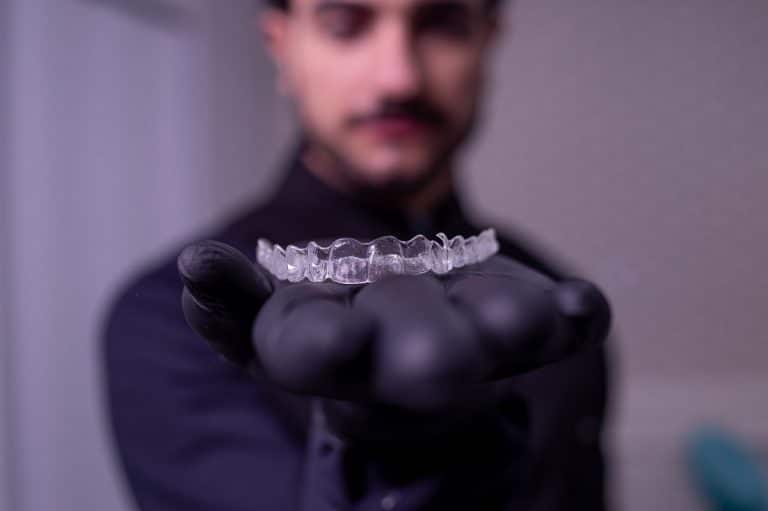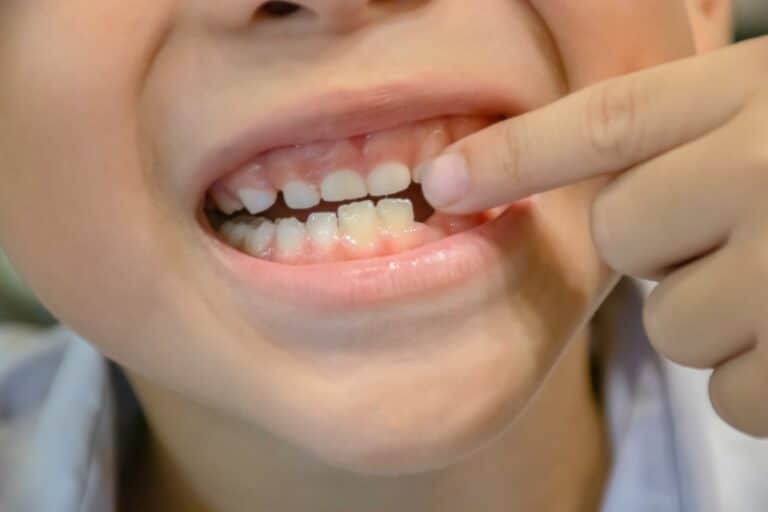A bright, well-aligned smile is a universally admired trait, with many seeking ways to improve their oral aesthetics. Among the arsenal of cosmetic dental treatments, dental bonding stands out for its simplicity and transformative potential. In this blog post, we’ll take a close-up look at cosmetic dental bonding and how it can impact the charm of your smile.
What is Cosmetic Dental Bonding?
Cosmetic dental bonding, an innovative and less invasive cosmetic dentistry procedure, involves applying a tooth-coloured composite resin to repair and enhance the appearance of your teeth. Designed to adhere to the natural tooth structure, dental bonding allows for minor aesthetic alterations that can make a significant difference in one’s smile.
The Bonding Process
The bonding process is relatively simple and painless, making it a favourite among patients looking for a quick dental fix. Initially, the dentist selects a composite resin that closely matches the patient’s natural tooth colour. The surface of the tooth is then gently etched to create a rough texture for the resin to bond effectively. After preparing the tooth, the resin is applied in layers, meticulously shaped to match the contours of the tooth and correct any imperfections. A specialised light is then used to harden each layer, ensuring the material sets properly on the tooth. Finally, any excess material is trimmed, and the tooth is polished to a natural, aesthetically pleasing finish.
Advantages of dental bonding include its cost-effectiveness and the minimal amount of enamel removal compared to veneers or crowns. Typically, the procedure can be completed in a single visit unless multiple teeth are involved. Bonding is a versatile solution that can address a variety of dental concerns, from chipped or cracked teeth to gaps and shape irregularities. However, while the results are immediate and can last several years, maintaining good oral hygiene and avoiding habits that could damage the resin, such as biting nails or chewing on pens, is crucial for longevity.
Benefits of Cosmetic Dental Bonding
Cosmetic dental bonding is not only a practical solution for improving dental aesthetic concerns but also offers a plethora of advantages that cater to the needs and desires of patients. Whether it’s to enhance the appearance of your teeth or to repair minor damages, dental bonding stands out as an excellent option in cosmetic dentistry. Let’s take a look at the key benefits that make dental bonding an appealing choice for those seeking a quick and effective way to beautify their smile.
- Aesthetic Improvement: Dental bonding can dramatically alter the appearance of teeth, making it ideal for cosmetic enhancements.
- Less Tooth Enamel Removal: Unlike other dental procedures, bonding requires minimal removal of tooth enamel.
- Cost-Effective: It is generally more affordable than other cosmetic dental treatments such as veneers or crowns.
- Time-Efficient: Most bonding procedures can be completed in just one dental visit.
- Minimal Discomfort: The process is typically painless and does not usually require anaesthesia.
- Repair Functionality: In addition to cosmetic improvements, bonding can restore the functionality of chipped or cracked teeth.
- Tailored Match: The composite resin used in bonding can be closely matched to the natural tooth color, ensuring a seamless blend.
- Ease of Care: Maintaining bonded teeth does not require any special care beyond good oral hygiene practices.
Common Uses of Cosmetic Dental Bonding
Dental bonding is particularly adept at addressing several dental aesthetic concerns. It can effectively conceal cracks and chips, close unsightly gaps, and give a uniform look to misaligned or uneven teeth. Dental bonding also offers a quick remedy for teeth that have discoloured, restoring a uniform whiteness that might have faded over time.
Although dental bonding is an excellent solution for various cosmetic issues, it is also used to treat conditions that may affect oral health. Decay can be stopped in its tracks with bonding, which also serves as a tooth-coloured filling for cavities. It furthermore provides relief for teeth that have been worn down by excessive grinding, a condition known as bruxism. For those with receding gums, dental bonding can protect the vulnerable roots that become exposed. It’s a versatile treatment option that not only enhances your smile but can also contribute significantly to maintaining and improving dental health.
Considerations and Limitations
Like any treatment, cosmetic dental bonding comes with certain considerations. While the results can indeed be long-lasting, they are not permanent, and the bonded areas may require maintenance or replacement over time due to wear. There is also a slight risk of staining and lesser resistance to discolouration compared to natural enamel or ceramic restorations. Additionally, dental bonding isn’t the recommended option for major dental reconstructions; in such cases, other procedures like crowns or implants might be more suitable.
Finding a Qualified Cosmetic Dentist
Selecting a qualified cosmetic dentist is crucial for achieving the best results in dental bonding treatments. It is recommended to look for a practitioner who is not only accredited but also has a wealth of experience in cosmetic dentistry. Scouring through reviews, examining before-and-after photos of previous patients, and verifying professional memberships in dental associations can provide insights into a dentist’s expertise. A consultation visit also allows for direct dialogue, where one can discuss their expectations and assess the comfort level with the dentist’s practice.
Building on its stellar reputation, Hamilton Dental Centre in New Zealand is one of the country’s leading dental practices for cosmetic dental care. Their dedicated team, led by Dr David Blom and Dr Bashar Humadi , is committed to bringing your best smile forward with personalised, gentle, and effective cosmetic treatments. At Hamilton Dental Centre, they don’t just transform smiles; they elevate your confidence with meticulous attention to detail and a passion for aesthetic excellence.
Conclusion
Cosmetic dental bonding is an excellent option for those looking to quickly and affordably enhance their smile. It offers a flexible solution to a variety of dental imperfections and can bolster one’s self-esteem. If you’re considering this straightforward yet effective procedure, we recommend you consult with a dental professional to receive advice tailored to your unique needs.
Remember, your smile is one of your most expressive features. With advancements like cosmetic dental bonding, an impeccable smile is more achievable than ever. Whether your teeth are chipped, gapped, or a bit lacklustre, dental bonding could be the ideal solution to restore your beaming confidence.
To explore your options for cosmetic dental bonding, or to learn more about cosmetic dentists in New Zealand, please contact Hamilton Dental Centre today.










![Home Renovation Guide [2025]](/app/uploads/2021/04/design-hacks-1-378x300.jpg)
